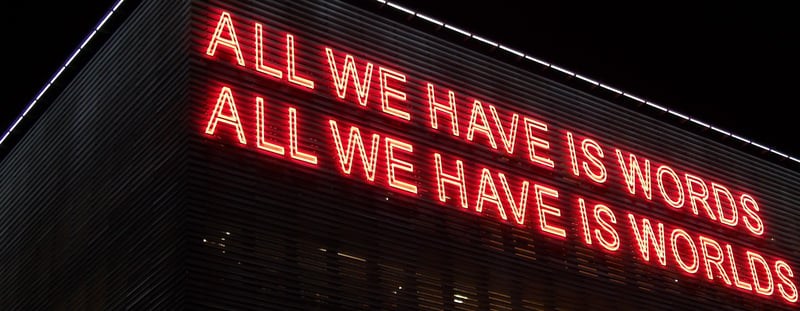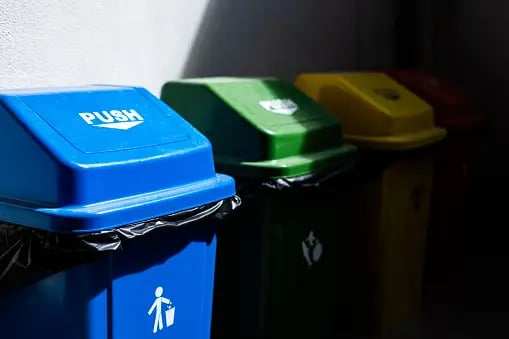From plastic novelties, costumes and decorations, items around the different seasonal celebrations and festivities are often bought to allow maximum convenience which comes with an invisible price tag - single use plastic that is not recycled.
And this month is Halloween...
Did you know that last year it was estimated that Halloween created 2,000 tonnes of plastic waste in the UK alone?
Thanks to David Attenborough, we have seen an increase in consumer awareness around recycling and the need to reduce our reliance on single use plastic. However, despite a clear need for waste reduction, more than half of single use plastic used in the UK is still not recycled.
It is our responsibility as consumers to sort items for local recycling, producers and retailers have an extended responsibility for ensuring the products they produce and sell - particularly items containing single use plastic - are effectively recycled.
Annually, supermarkets in the UK use over 100 billion pieces of single use plastic in their products - per household this is over 4,000 items of plastic used once before being disposed of.
To reduce their single use plastic footprint, varying levels of action is being taken by supermarkets across the UK. The UK Plastics Pact, led by WRAP (Waste and Resources Action Programme), includes signatories from the majority of supermarket chains and aims to reduce plastic waste throughout the supply chain. Several targets have been established for 2025 including a need for 100% reusable, recyclable or compostable plastic packaging and an average recycled content of 30% in all plastic packaging.
However, steps can be taken by consumers today to reduce their single use plastic waste and encourage supermarkets to adopt commitments which can positively influence consumer behaviour before 2025.
By purchasing products which come without packaging or in alternative packaging made from recyclable material such as paper or aluminium, consumers can start the fight on single use plastic. Items such as plastic glitter, food trays and polystyrene pizza boards can be avoided by shopping at supermarkets which offer sustainable alternatives without compromising on quality or convenience. Some supermarkets, such as a new Asda in Leeds, are taking this one step further by integrating sustainability zones into their stores for consumers, to take the thinking out of shopping sustainably.
Why is glitter not as dazzling as it seems?
Glitter is a micro-plastic (a fragment of indestructible waste measuring less than 5mm in length) which plays a key part in polluting oceans and causing harm to wildlife. However, we inadvertently consume microplastic at a rate of 2000 pieces a week - about the size of a credit card, the majority of which is hidden in our water, beer and seafood.
The UK government supports the fight against single use plastics and DEFRA have made great strides this year through means of bans on single use straws and charges for single use plastic items such as carrier bags. However much more must be done if we are to achieve the UK government's target of 'zero avoidable waste' by 2050.
The next milestone is imposing taxes where products do not meet a minimum level of recycled content or contain single use plastic, to ensure that producers and retailers take more responsibility for the products and waste packaging they produce.
Want to make the shift towards a more conscious approach to the festive celebrations?
Try shopping the below:
Tesco: all Christmas wrapping paper, tags and own-brand single Christmas cards are 100 percent glitter-free, while it is only biodegradable glitter that customers will find on the Christmas horticulture range.
Sainsbury's: all own-brand Christmas cards and crackers do not contain plastic packaging and fully recyclable, plastic-free alternatives are available.
Marks & Spencer: have a glitter-free Christmas Celebration including greeting cards, wrapping paper, tags, gift bags, calendars and more. By the end of 2020 they have committed to ensuring all own-brand cards and gift-wrapping will be 100% glitter-free, all year round.
Boots: all gift packaging from Boots is now plastic-free and is intended to be recycled or reused.
Morrisons: crackers, wrapping paper, present bags, flowers, plants and wreaths are now 100 per cent glitter-free.
Waitrose: all own-brand cards, crackers, wrapping paper, gift bags are now 100 per cent glitter-free.
Let's enjoy the celebrations and festivities safely this year and see what we can do to reduce the environmental impact we are having on the planet and the mountain of plastic we have to try and recycle afterwards..!
To learn more about what you can do to reduce waste and recycle, sign up for your free Rio Engage learning account today!









